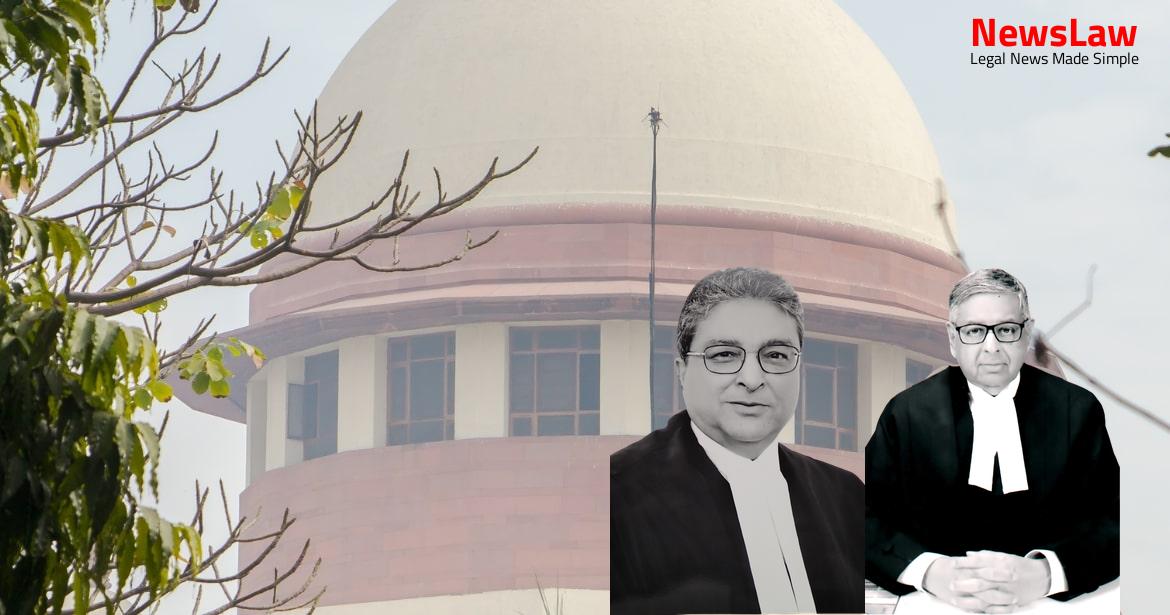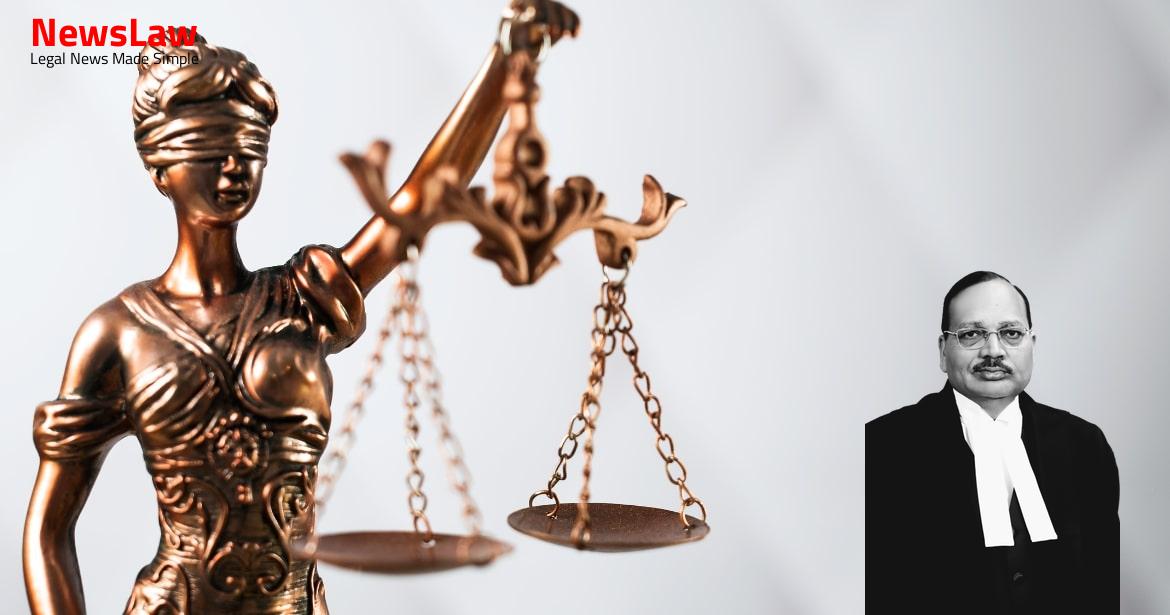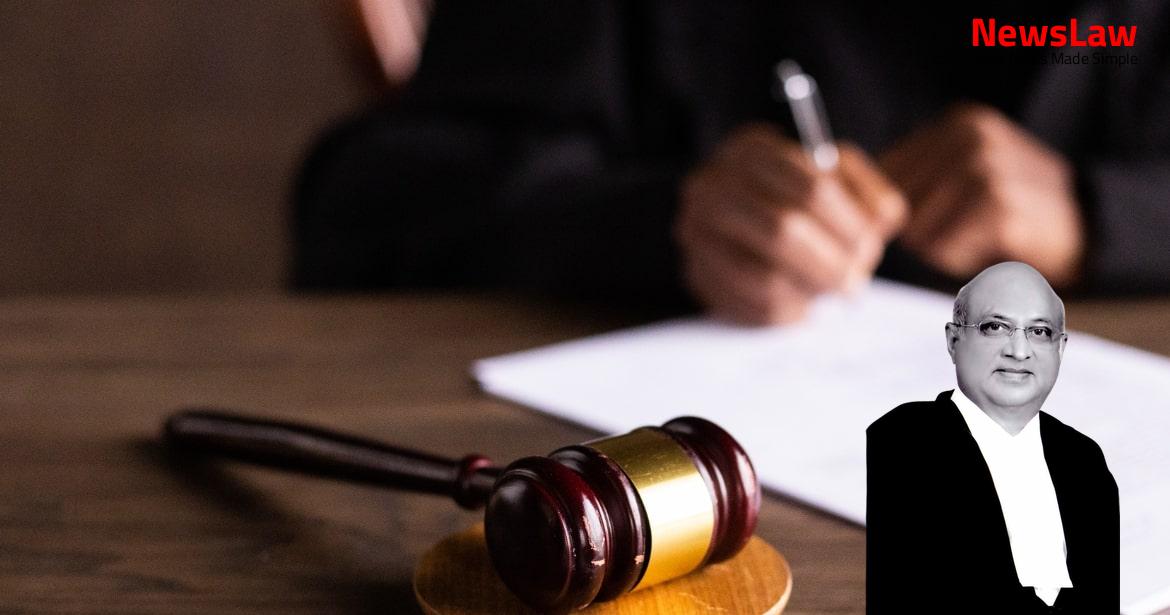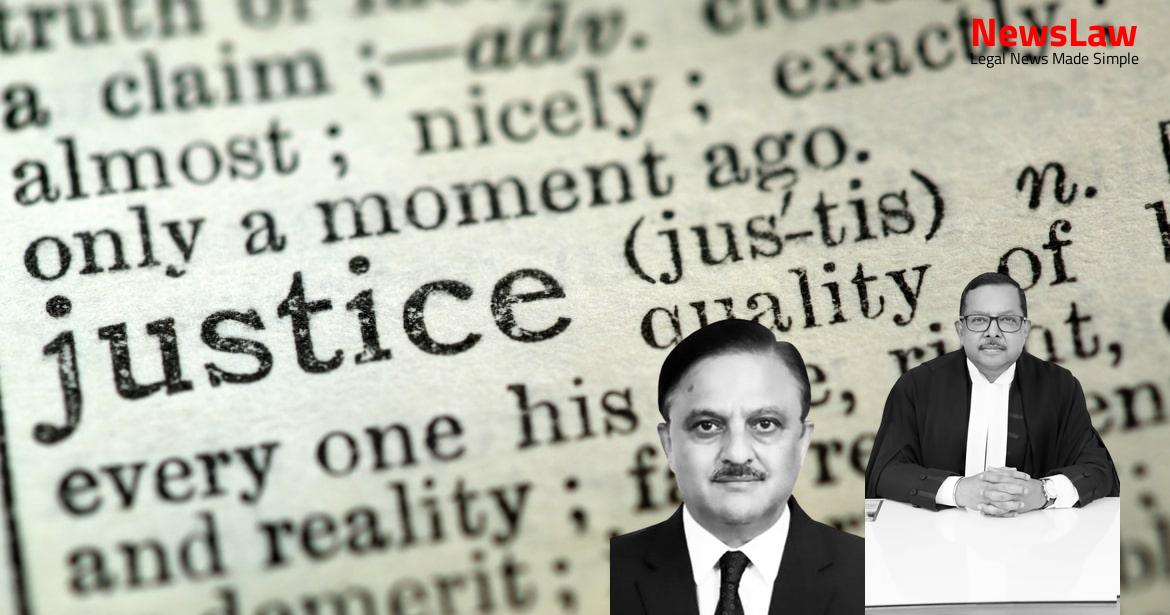Delve into the intricate legal analysis of a significant case revolving around the interpretation of the Swatantrata Sainik Samman Pension Scheme. Understand the court’s perspective on the eligibility requirements for pension benefits under this scheme, shedding light on the complexities surrounding the recognition of genuine freedom fighters. Stay tuned to unravel the nuances of the court’s decision in this pivotal legal matter.
Facts
- The respondent no. 1 filed an application for pension under the Swatantrata Sainik Samman Pension Scheme in 1982 based on his period of confinement during the freedom movement in 1942.
- Despite submitting multiple applications and pursuing the matter through various legal avenues, the respondent’s claim was rejected by the Central Government in 2009.
- As a result of the rejection, the respondent filed an appeal before the Division Bench of the High Court, which also ruled against him in 2020.
- Following the dismissal of the appeal, the respondent approached the Madhya Pradesh High Court through a writ petition, leading to a directive for the appellant to reconsider the respondent’s claim for pension.
- The specific contention of the respondent is that he remained underground from 21.11.1942 to 20.08.1943, during which time he did not attend school, thus fulfilling the criteria for the freedom fighter’s pension.
- Respondent no. 1 filed a writ petition before the Single Judge of the Madhya Pradesh High Court.
- The petition was allowed on 14.02.2019.
- The order dated 03.02.2009 passed by the appellant was set aside.
- Appellant was directed to grant pension to respondent no. 1 with 6% interest per annum.
Also Read: Judicial Review in Disciplinary Proceedings
Arguments
- The appellant’s submission questions the claim of respondent no. 1 of being underground during the freedom movement of 1942, citing lack of specific proof.
- Disputed the authenticity of the school certificate presented by respondent no. 1 that indicates his attendance during the claimed period.
- Argued that non-attendance at school does not conclusively prove underground involvement in the freedom movement.
- Highlighting the delay of twenty years in filing the pension application under the freedom fighters pension scheme.
- Raised doubts about the issuance of the certificate by the freedom fighters due to their own imprisonment during the claimed period.
- Emphasized the necessity of providing exact details of the period of underground activity, which was allegedly lacking in respondent no. 1’s case.
- Pointed out the absence of a recommendation by the State Government, a mandatory requirement for pension approval, which led to the rejection of respondent no. 1’s application.
- The judgments of the High Court do not call for any interference, as contended by the respondent.
- The appeal is considered to be dismissed.
- The claim of the respondent no. 1 was made for the first time on 27.12.1982.
- The Freedom Fighters Pension Scheme existed in the year 1972 and was amended in 1980.
Also Read: Legal Analysis in Company Law Case
Analysis
- Respondent no. 1 was not declared a proclaimed offender or had any detention order issued but not served
- Certificates issued by freedom fighters while in jail claiming respondent no. 1 remained underground are questioned
- Attendance record from school at age 12 does not prove underground participation in freedom struggle
- State Government’s grant of pension does not automatically qualify respondent no. 1 for Central Government scheme benefits
- Benefits such as pension should only be awarded to those entitled under government schemes
- Timely filing of claims for benefits is crucial
- Eligibility for benefits under the SSS Pension Scheme requires being underground for more than six months
- Proper documentation and recommendation by the State Government are necessary for pension scheme applications
- Genuine freedom fighters should be treated with reverence, respect, and honour
- Union of India Versus Avtar Singh (2006) 6 SCC 493 mentioned this in paragraph 8 of the judgment
- People who did not participate in the freedom struggle should not benefit from liberal approaches given to freedom fighters
- Most freedom fighters are elderly individuals
Also Read: Secured Creditor Rights vs. Confiscation Orders Legal Battle
Decision
- The Division Bench of the High Court overlooked the requirements of the SSS Pension Scheme, 1980 for the grant of benefits to respondent no. 1.
- Granting pension to respondent no. 1 was done based on sympathy and a benefit from a separate state government scheme, without proper authentication.
- The judgments of the High Court dated 14.02.2019 and 17.02.2020 are set aside.
- No costs are ordered.
- Appreciation for the assistance provided by Mr. Rajeev Kumar Bansal, counsel appointed by the Supreme Court Legal Services Committee.
Case Title: UNION OF INDIA Vs. KRISHNA MODI (2022 INSC 144)
Case Number: C.A. No.-000909-000909 / 2022



